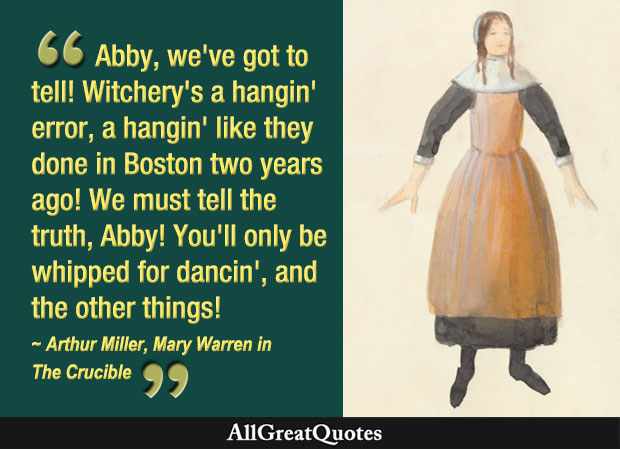The door opens, and his Negro slave enters. Tituba is in her forties. Parris brought her with him from Barbados, where he spent some years as a merchant before entering the ministry. She enters as one does who can no longer bear to be barred from the sight of her beloved, but she is also very frightened because her slave sense has warned her that, as always, trouble in this house eventually lands on her back.
– Arthur Miller
The Crucible, Act 1. The theme of racism is found in these stage directions and description of Reverend Parris’s black slave from Barbados, Tituba. We are told how very frightened she is because any trouble in the house is always blamed on her. The language suggests her feelings of oppression and imprisonment, as in "can no longer bear to be barred." She represents inequality and powerlessness in a play where power and its abuse is a strong theme. Though the most socially inferior person, Tituba is an important character in the play. She is the first person to be accused of witchcraft, which is foreshadowed here. She is also the first to name other women as witches: Sarah Good, Sarah Osburn and Bridget Bishop.

